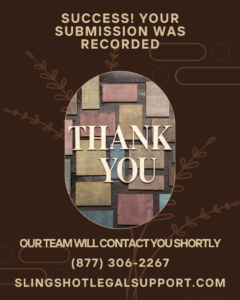Championing for All
At Slingshot Legal Support, we offer a wide range of legal services to meet your needs. Our experienced team is dedicated to providing top-notch assistance in housing, labor/employment, mass torts, and other areas of law. We are passionate about helping our neighbors and standing in solidarity with workers against injustice and corruption.

Our Expertise in Fair Housing Laws

Fair Housing Act

Americans with Disabilities Act

NY State & City Human Rights Laws
Success Stories
Real Results for Real People
At Slingshot Legal Support, our mission is rooted in client satisfaction and positive outcomes. Explore how we assist individuals and families in overcoming housing challenges.
Case Study: Secured Housing for a Family
When a family faced wrongful eviction, we diligently pursued a settlement that upheld their rights and provided them safety in their living situation.
Case Study: Advocating for Disability Rights
We championed a client with disabilities facing denial for necessary modifications, ensuring they received the essential accommodations for living.
Case Study: Fighting Discrimination
After a single mother was denied housing, we advocated on her behalf, resulting in the lifting of discriminatory actions and securing her a home.
FAQs
The Fair Housing Act is a federal law that prohibits discrimination in housing based on race, color, national origin, religion, sex, disability, and familial status. It ensures that everyone has equal access to housing opportunities, free from discriminatory practices.
If you believe you have experienced housing discrimination, you can file a complaint with the U.S. Department of Housing and Urban Development (HUD) or your state’s fair housing agency. You may also seek legal advice from professionals like Slingshot Legal Support or our partner law firms who can help you understand your rights and take action.
Yes, under the Fair Housing Act and the Americans with Disabilities Act (ADA), landlords must make reasonable accommodations for tenants with disabilities, such as allowing service animals or making modifications like installing ramps. The tenant is usually responsible for the cost of modifications, but the landlord must allow the changes.
Reasonable accommodations are changes to policies, practices, or services that allow a person with a disability to have equal enjoyment of their housing, like allowing a service animal. Reasonable modifications involve physical changes to a residence, such as installing grab bars in a bathroom. These changes should not impose undue financial or administrative burdens on the housing provider.
No, refusing to rent to someone because they have children is a violation of the familial status protections under the Fair Housing Act. This includes families with children under 18 and pregnant individuals. However, there are some exceptions, such as in certain senior housing communities.
Yes, landlords can use credit scores as part of their screening process, provided they apply the same criteria to all applicants. However, a landlord cannot selectively use credit scores as a way to discriminate against a protected class under fair housing laws.
Steering occurs when real estate agents or landlords guide potential buyers or tenants towards or away from certain neighborhoods based on their race, religion, or other protected characteristics. This practice is illegal under the Fair Housing Act because it limits housing options based on discrimination.
Document the violations and contact Slingshot Legal Support at (877) 306-2267 to understand your options for addressing the issue.
Client Feedback



Get in Touch
We're Here to Help
Email Us
For any questions or concerns, feel free to reach out via email. We respond promptly! info@slingshotlegal.com
Call Us
Need immediate assistance? Our team is just a phone call away. (877) 306-2267



